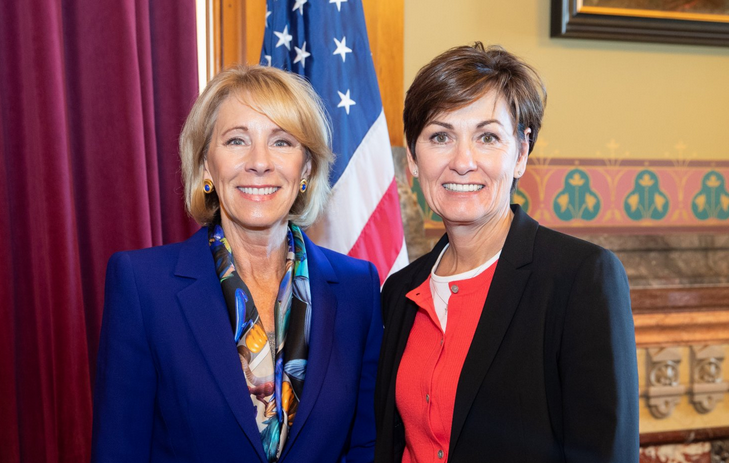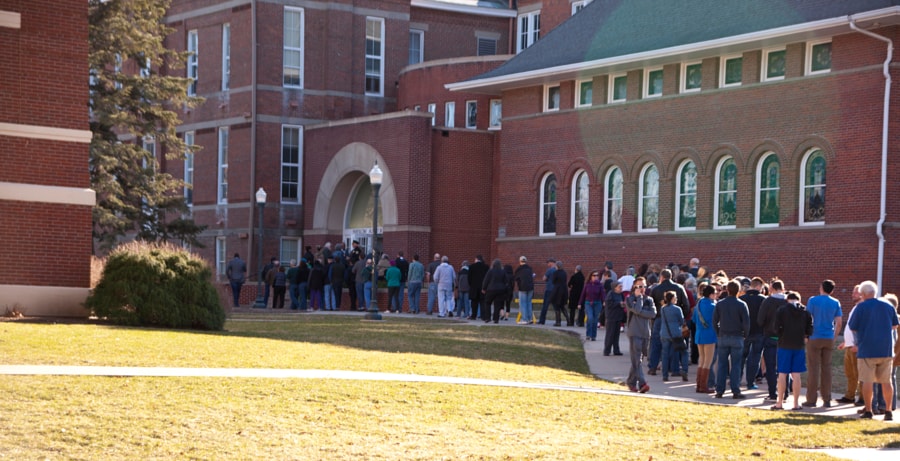A belated happy Thanksgiving to the Bleeding Heartland community. I didn’t cook this year, but for those who did, here are four ways to make soup from Thanksgiving leftovers; two involve turkey, two are vegetarian. My favorite way to use extra cranberry sauce: mix with a few chopped apples and pour it into a pie crust (I use frozen, but you can make your own crust). Make a simple crumbly topping with a little flour, rolled oats, butter, brown sugar and cinnamon, and sprinkle over the top. Bake and you’ve got an extra pie to share.
If your family is anything like mine, you’ve had a lot of conversations this weekend about the impending national nightmare as Donald Trump prepares to become the world’s most powerful person. Can Supreme Court Justice Ruth Bader Ginsburg hang on as the fifth vote to preserve Roe v Wade for five more years? Could Trump have chosen a worse candidate for attorney general than Jeff Sessions? What about his National Security Adviser Michael Flynn, a hothead with ties to Russian President Vladimir Putin who has compared Islam to a “cancer,” and had technicians break security rules to install an internet connection in his Pentagon office? Then there’s Trump’s pick for secretary of education, Betsy DeVos: she’s never worked in the education field, has long sought to undermine public schools, is a well-known homophobe and hostile to the concept of church/state separation. DeVos has admitted to using her family’s wealth to buy political influence. Mother Jones has taken a couple of deep dives into the DeVos family’s efforts to change American policies and policies: click through to read those pieces by Andy Kroll and Benjy Hansen-Bundy and Andy Kroll.
One of the most disturbing aspects of this election is how the Russian government got away with brazen attempts to get Trump elected. Craig Timberg’s report for the Washington Post is a must-read: independent researchers described how Russia’s “increasingly sophisticated propaganda machinery […] exploited American-made technology platforms to attack U.S. democracy at a particularly vulnerable moment.” Whether Russian subterfuge was decisive can be debated, but we all saw the extensive media coverage of mostly unremarkable e-mails among Clinton campaign staff and strategists. Most of us had fake news pop up on social media feeds. I can’t believe how many journalists and politicians have reacted casually to this development. Eric Chenoweth of the Institute for Democracy in Eastern Europe is nailed it in his editorial for the Washington Post: “Americans continue to look away from this election’s most alarming story: the successful effort by a hostile foreign power to manipulate public opinion before the vote.”
Two people who aren’t looking away are Yale University history Professor Timothy Snyder and Masha Gessen, who reported from Russia for many years under Presidents Boris Yeltsin and Vladimir Putin. I enclose below advice from Snyder on how to adapt to authoritarian government and excerpts from Gessen’s recent commentary, “Autocracy: Rules for Survival.” Like the old Russian saying goes, “Hope for the best, prepare for the worst.”
This is an open thread: all topics welcome.
UPDATE: My husband Kieran Williams, who has studied democracy in other countries, shared his perspective on how “normalization” happens after a “shocking event”: “people in a position to stop it decide to play along, and find ways to convince themselves that they are doing the right thing, for either the greater good or the narrow good of kith and kin.”
Continue Reading...









